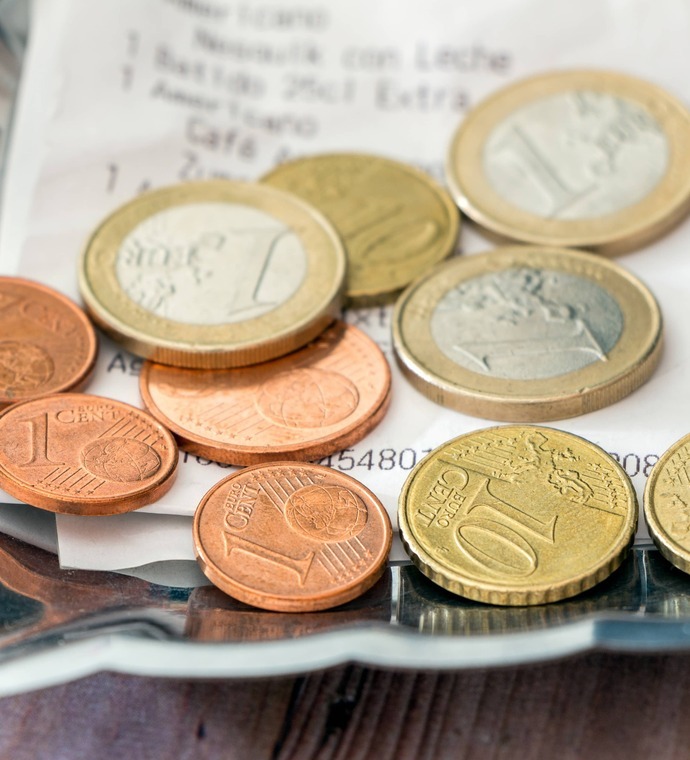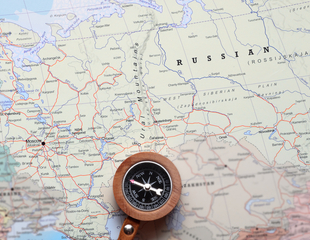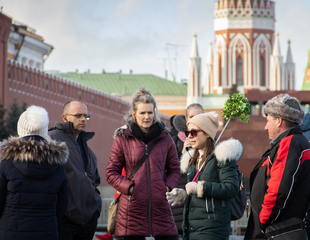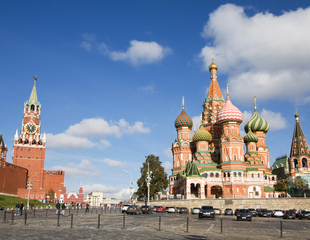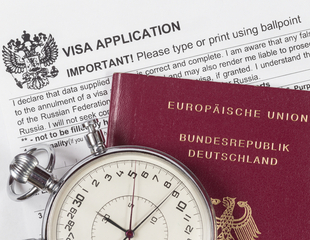The national currency of the Russian Federation is the Russian Ruble. Banknotes used in the country are released in the following denominations: 50,100,200, 500, 1000, 5000 rubles. The abbreviation for Ruble is «Р» in Russian, do not get confused: Russians use the Cyrillic alphabet, so letters are slightly different. As for the coins, they come in 1, 2,5,10 rubles. There are 100 kopeikas in a Ruble, but this type of coin is rarely used now.
Exchanging money
It is good to have some local currency before arriving in Russia. However, you might not be able to find as much as you need in banks outside Russia. Besides, bringing many rubles with you is merely unnecessary as the exchange rates in Russia are often better than those in your country. Thus, get some rubles as a back-up and take USD and Euros with you. Banks in Russia usually have good exchange rates for them (compared with other currencies), and they are accepted all over the country.
Mind that old, damaged, torn, or dirty banknotes will not be accepted or might be exchanged at a lower rate. Some bills might be rejected even if they have a small "wrinkle" in the corner. Try not to fold banknotes. Russian banks want you to give them clean, unworn, almost crisp bills. Expect the same approach from them too. Remember that you will be asked to show your passport in a bank.
Currency exchange is available everywhere in large cities. Try to avoid changing money at the airports, as the rates might be bad there. It would be better to get to the city first. Most of the hotels are centrally located, and so are the banks. Banks are always very easy to identify, as they look the same all over the world. Ask your hotel staff, and they will direct you to the nearest bank/currency exchange.
Rates can vary from one bank to another. If your trip also involves going to small Russian villages and towns, it would be better to get most of the cash in big cities, such as Moscow and St Petersburg. Prepare more money for rural areas as credit cards might not be accepted there.
Credit cards, cheques, and cash
ATMs are widely spread and available in every Russia's big city. ATMs are not only located in banks; they can be found in grocery stores, in department stores, at some hotels, in the airport terminals, bus and train stations, at the exit of metro stations. Withdrawing cash might involve some bank fee.
Visa, Mastercard credit, and debit cards are accepted everywhere in large cities and towns: at hotels, in restaurants, shops, in taxis, even in some open-air markets in big cities (especially if they are targeted at tourists). There can still be some issues with American Express, so bringing a few different credit cards with you will come in handy.
Before departing to Russia, you should call your bank and warn them about your travel plans.
Cheques are not used in Russia. As for cash, it is essential to have enough Rubles if you visit some remote Russian towns. However, if you are coming to large cities, there is no need to carry much cash with you as there are plenty of banks and bank machines all around. It would be better to divide your money and keep it in different places. Do not carry all your cash with you and never demonstrate how much you have got.
You might need to have some cash to tip, as it is customary in Russia, but it is rarely included. Cash might be helpful if purchasing something little at the markets or from the street vendors. However, we recommend you to be very cautious with them in Russia. As for shopping in touristy places, some stores and hotels might even accept your country's national currency, but this is not true everywhere.
Tax-free shopping
Being a foreigner in Russia, you can get a refund for up to 18 % of your purchase if you spend a total amount of over 10000 rubles a day at the same store.
The shops with the tax-free option are marked with a special sign (or logo of the tax-free operator). When paying, you should ask for a tax-free form.
The period to claim tax-free is three months from the purchase date. Your receipt must be attached to your tax-free form. In order to get a refund, you will have to demonstrate the goods you purchased, the receipts, your tax-free check, and your passport to the customs officers as you leave the country through one of the "approved" border checkpoints.
Tax-free operators:
Bargaining
Bargaining in taxis is not customary, but generally, prices are affordable. For safe travels, use official taxi companies. UBER or Yandex taxi (comfort + and higher) work well, as you do not need to negotiate and, thus, you will not experience a language barrier.
Tipping
Russians usually tip from 5 to 15 percent in restaurants. Some restaurants and cafes include tips into the bill, but not always. The tour guides accept tips in cash. Tip 10-20 % of the bill depending on how you liked their services. Ad for the drivers, you can leave tips via the mobile app. 5-10 % of the bill will be enough.

